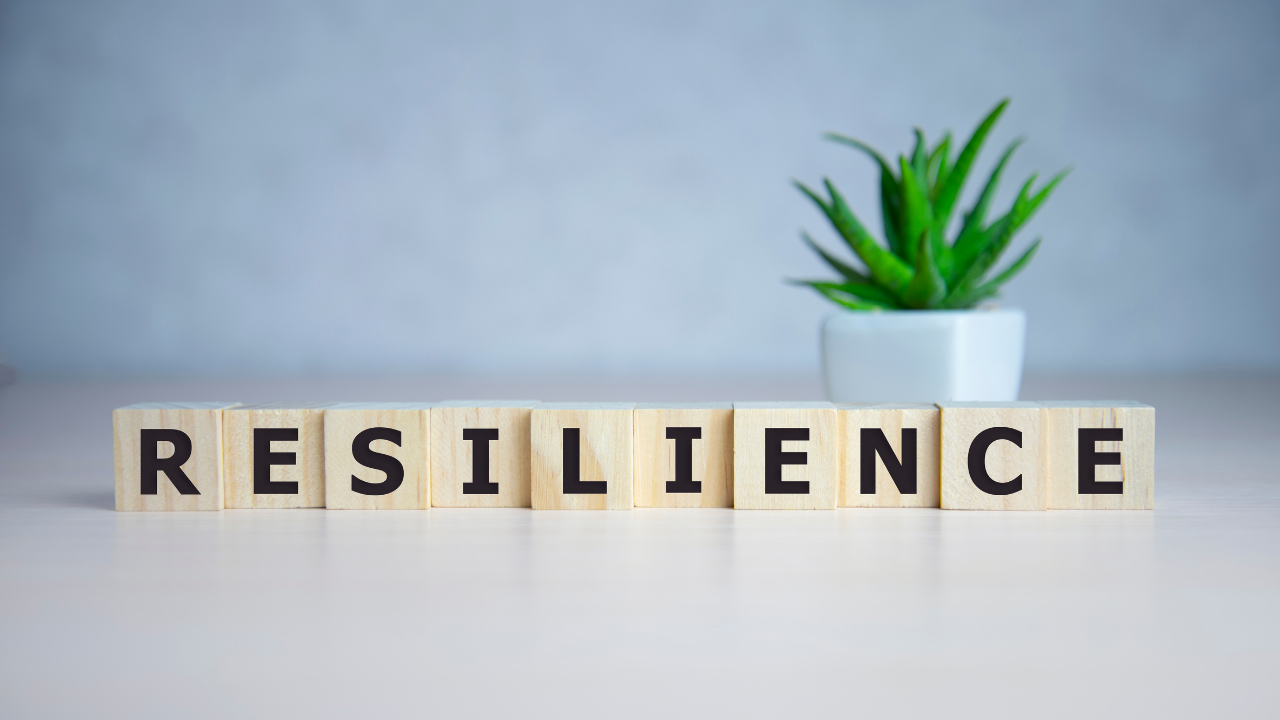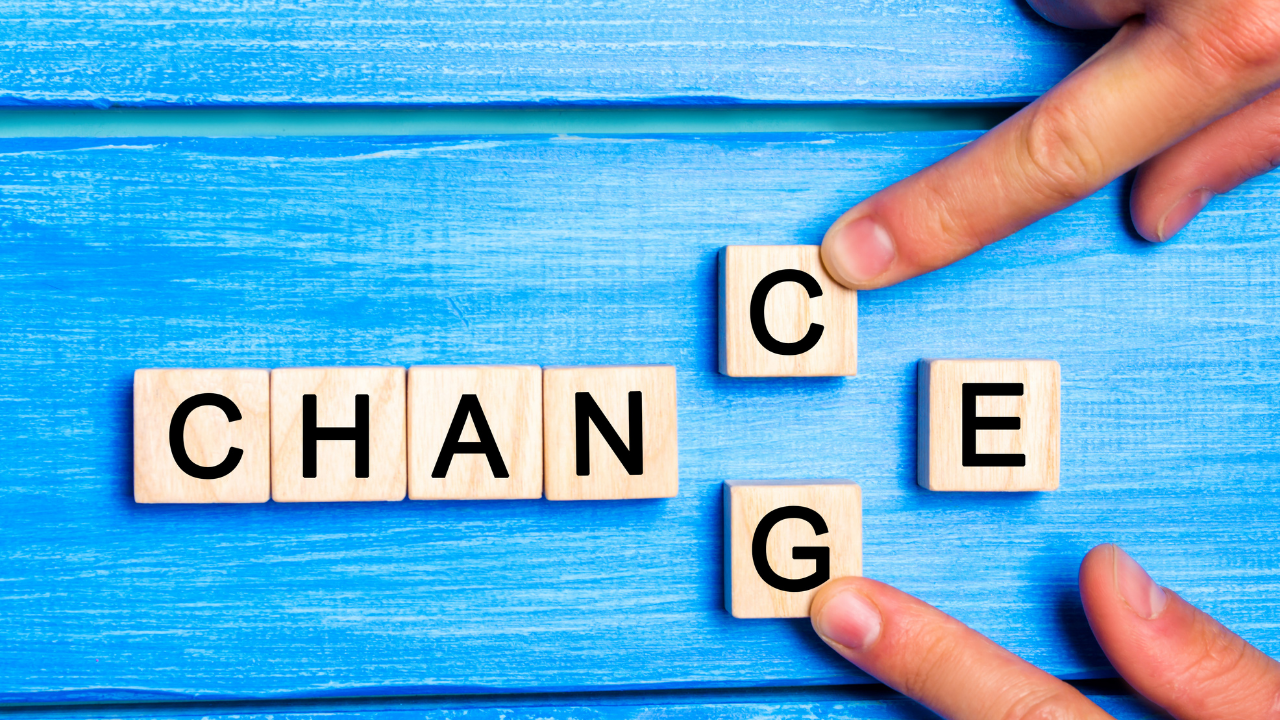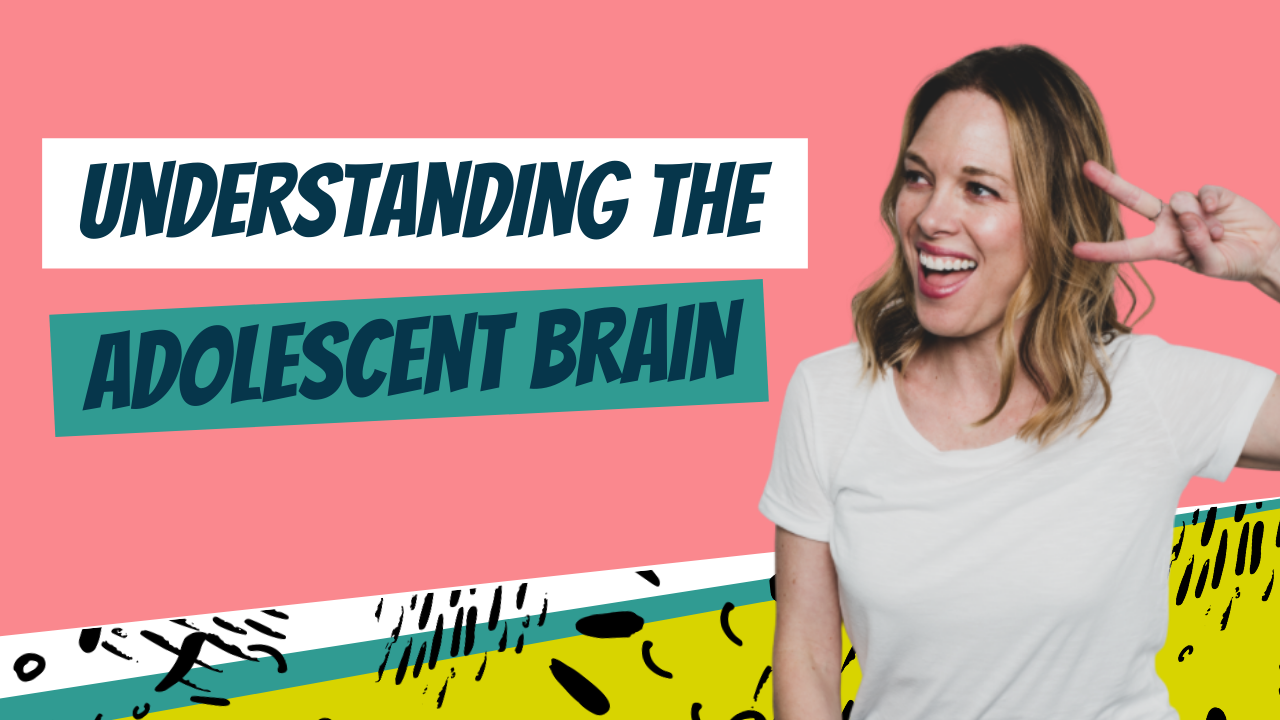Is Your Discomfort Getting in the Way of Their Growth?

Oh, pimples, cliques, training bras, voice cracks, and stinky gym socks galore! Adolescence is no walk in the park. As an adult, it's easy to bury those years deep in a vault, thankful you don't ever have to relive them. And you can almost trick yourself into thinking that's true. Then one morning you wake up to see your very own and very grown adolescent slouching at the breakfast table. All of the angst and all of the awkwardness comes rushing back to you and everything in your body tells you that you should be very, very scared.
And that's what we're told - from society and anecdotal evidence - to believe about adolescence, that's it's a time to be feared, stressed out, and defeated.
But we can do SO MUCH BETTER.
It's true, middle and high school can be deeply uncomfortable times on many levels. There is a sort of dissonance that happens at this age. Your child is maturing and becoming more independent from you, while still remaining extremely naive about high-stakes topics: sex, drugs, relationships, friendships, body image, to name a few.
Maybe you're squirming in your seat a little bit thinking about your child going through these changes, getting flashbacks of your own experiences.
And, this flashback brings up pain and maybe even some trauma.
Have you stopped to think about how your own discomfort might be getting in the way of optimizing this stage for your own kid?
How your own discomfort is blocking your connection? Or, how it's stunting the growth of your middle schooler?
Your adolescent is being exposed to some pretty serious life stuff and they're going to experiment, they're going to ask questions, and they still need you - no matter what.
Do you want to be the person they turn to in those moments?
So WHY is adolescence so uncomfortable for parents?
Besides the obvious, it can boil down to one simple lie you are telling yourself.
Here's the lie: That you're uncomfortable for your middle schooler. That you're scared, worried, protective for them.
Here's the truth: You're really feeling all of those things for yourself, too. And the reason you tell yourself this lie is that it's uncomfortable. Facing the truth also means facing:
-
Your unhealed adolescent past
-
Your resistance to change
-
Your perceived loss of control
You might have resistance to looking at your past, how you handle change, or "loss" of control, or maybe you brush it off thinking that it has nothing to do with your middle schooler and the real problems they're facing, but let me say this:
Your adolescent's experience is deeply connected to how you show up for them. The biggest things that get in the way of you showing up as the parent they need are unhealed pasts, resistance to change, and looking to gain more control.
It's not the topics of sex, drugs, or dramatic peer relationships that have you feeling frozen in fear. It's what happened to you when those topics came up for you in middle school, maybe you were made to feel shame around these things - from parents, peers, teachers, society. And your very valid and very real parental instinct is to protect your own kid from facing those same uncomfortable and sometimes destructive situations. Right?
You can't imagine that your child is at the age where their friends are talking about "those things" and experimenting with "that stuff". They're too young, too innocent, they were only a child a moment ago needing you for everything. This is the dissonance I'm talking about. It's happening for your middle schooler; they're being pulled from childhood and into adulthood, and early adolescence is this weird space in between where it all gets mixed up. But you're also experiencing a similar dissonance as a parent; your child is growing up and it feels too soon to be letting go of control.
On one hand, you know they still need you and a part of you is longing for the physical closeness you had, but on the other hand, you know that they're going to have their own experience and learn their own lessons. And that change, that shifting, for the both of you, is extremely uncomfortable.
I believe that is why adolescence is so uncomfortable for parents. It feels like a free fall and life as you and your middle schooler knew it is over. It's hard NOT to feel uncomfortable by that!
But let me tell you about why discomfort is good for your middle schooler and how your own discomfort might be getting in the way of their growth.
Trying to protect them and keep them safe from every bump, every uncomfortable situation is not helpful for your kid in the long run. In fact, constantly coming to the rescue can send them the wrong message.
What it tells them is that they are incapable of doing or working through hard things by themselves. Eventually, they will start to feel overwhelmed by small tasks or to-dos and their mistrust in themselves will lead to increased anxiety.
It's hard to watch your child feel anguish, disappointment, anger, or any so-called negative emotion, but coming to their rescue every time they feel a bad feeling could teach them that their life should be nothing but comfortable, or easy, or they should only feel good feelings. And so, when they inevitably face challenges or feel sad, they think that something is either wrong with them or wrong with the way they believe the world to be. You can see the issue with this mentality...
While the feelings of happiness, joy, and ease are extremely desirable, it's unrealistic to constantly be chasing those feelings. Or in a parent-child relationship, to be constantly shielding your kid from feeling anything but good feelings. The authors of The Upside of Your Darkside, Todd Kashdan and Robert Biswas-Diener, wrote that if we only seek what makes us comfortable then we get out of practice of dealing with discomfort. And, ironically, that only makes us more uncomfortable.
When your middle schooler learns to sit with discomfort and find a way out of it on their own - in their own way - it helps them to build resilience. Research has shown that people learn and grow the most when they are out of their comfort zone, and, as I said, if they aren't practicing being uncomfortable it makes that discomfort worse. They can only build the skills necessary for facing challenges when we are actually being challenged.
So, when you're feeling that discomfort creep in, and you notice yourself wanting to swoop in and handle it, or avoid the conversation because they shouldn't know this yet, take a deep breath and think about these points:
-
The only way forward without all the fear is by facing and healing the past. This is the work you have to do.
-
If they're asking the question, they already know about "it" so you should be the one to talk to them directly about these uncomfortable topics. Their peers could dangerously misinform them, and your kid might fill in the gaps with untrue, unhealthy information. (If you want tips on how to help them open up to you, listen to the latest EA Podcast episode).
-
Your middle schooler's experiences aren't your own experiences, and you have an opportunity to guide them to internalize your family values, which will shape how they think, feel, and behave in the face of challenges.
-
Reasonable discomfort is beneficial. Sit with it, ride it out. It is literally the only way to build sustainable resilience.
-
You're still the most important belief-shaper, environment-maker in their life
We can all agree that change is uncomfortable, but that doesn't mean it has to be so hard. Your middle schooler's discomfort can actually lead to long-term life skills that will help them thrive well into adulthood. So when you have the urge to turn away or come to the rescue, just pause. Let the discomfort wash through you. See how long you can hang in there, knowing that it's temporary, and they're growing for the better. Allowing this space and resisting any kneejerk reactions will help you to heal from your own experiences and give your middle schooler room to grow and begin to redefine adolescence.
Ready to Transform Your Parenting?
Grab my done-for-you Teenage Guide and start seeing real changes today! Click below to get yours now.
Don't Parent Alone—Join My VIP Email List!
Get exclusive parenting tips, free resources, and special updates straight to your inbox. No fluff—just real, actionable advice to help you navigate parenting with confidence!
By subscribing, you agree to receive ongoing updates




